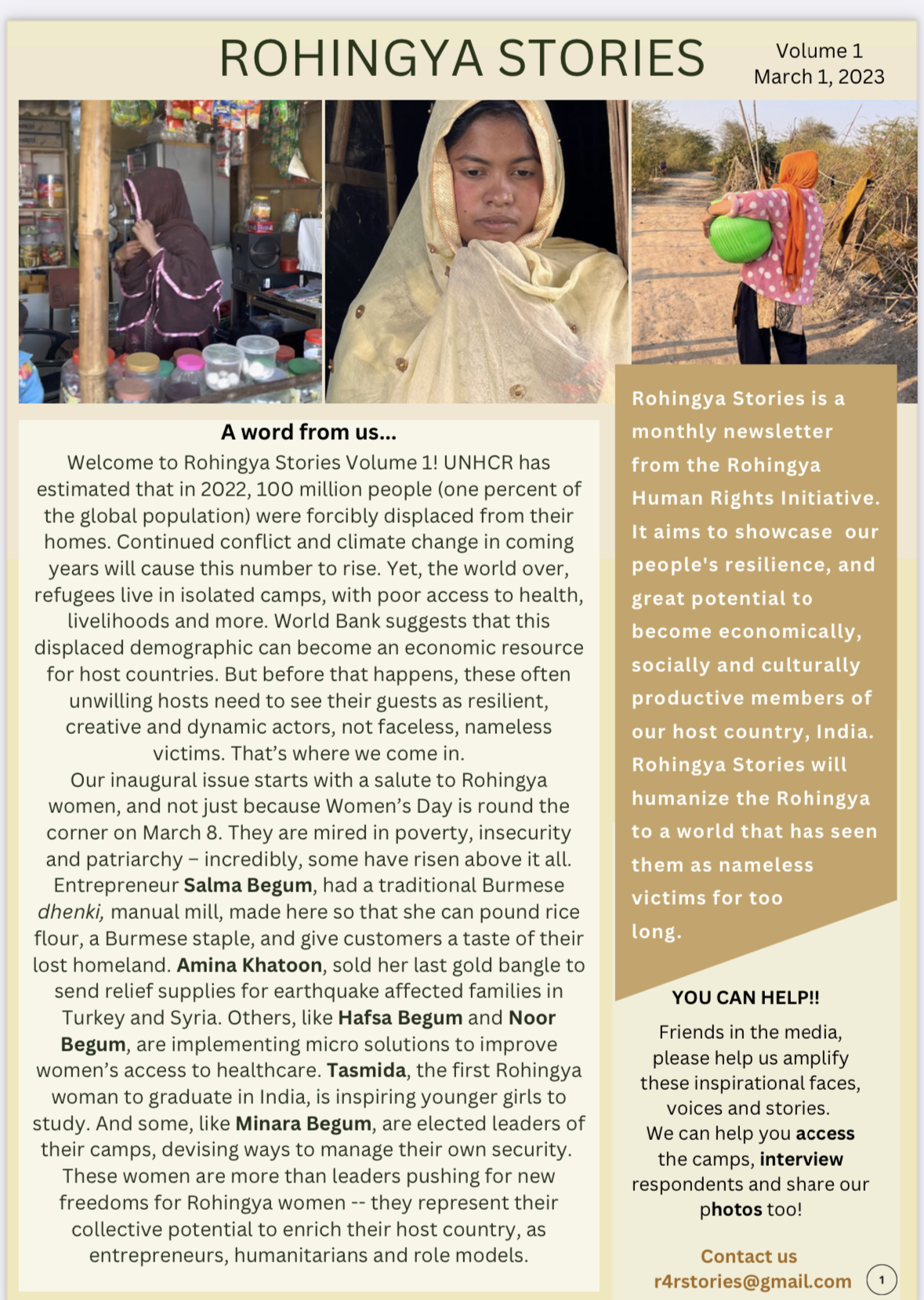
Rohingya Stories is a monthly newsletter from the Rohingya Human Rights Initiative. Volume 1!
| View PDFA word from us...
Welcome to Rohingya Stories Volume 1! UNHCR has estimated that in 2022, 100 million people (one percent of the global population) were forcibly displaced from their homes. Continued conflict and climate change in coming years will cause this number to rise. Yet, the world over, refugees live in isolated camps, with poor access to health, livelihoods and more. World Bank suggests that this displaced demographic can become an economic resource for host countries. But before that happens, these often unwilling hosts need to see their guests as resilient, creative and dynamic actors, not faceless, nameless victims. That’s where we come in.
Our inaugural issue starts with a salute to Rohingya women, and not just because Women’s Day is round the corner on March 8. They are mired in poverty, insecurity and patriarchy – incredibly, some have risen above it all. Entrepreneur Salma Begum, had a traditional Burmese dhenki, manual mill, made here so that she can pound rice flour, a Burmese staple, and give customers a taste of their lost homeland. Amina Khatoon, sold her last gold bangle to send relief supplies for earthquake affected families in Turkey and Syria. Others, like Hafsa Begum and Noor Begum, are implementing micro solutions to improve women’s access to healthcare. Tasmida, the first Rohingya woman to graduate in India, is inspiring younger girls to study. And some, like Minara Begum, are elected leaders of
their camps, devising ways to manage their own security. These women are more than leaders pushing for new freedoms for Rohingya women -- they represent their collective potential to enrich their host country, as entrepreneurs, humanitarians and role models.
By the Rohingya Stories Volume 1!
